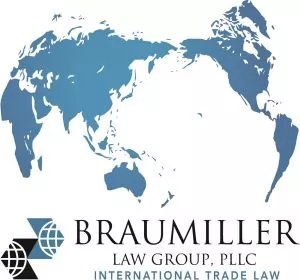- with readers working within the Chemicals and Retail & Leisure industries
- within Energy and Natural Resources, Corporate/Commercial Law and Technology topic(s)
IMMEX is an acronym that in Spanish stands for Industria Manufacturera, Maquiladora y de Servicios de Exportacion (Manufacturing, Maquiladora and Export Services Industry). It is a program from the Mexican federal government focused on promoting foreign investment, exports, creation of jobs, development of technology, etc. Companies can apply for an authorization to operate under this program provided they comply with the requirements. This would allow them to qualify for Customs benefits on the import duty rate and the value added tax.
An IMMEX may import in bond whatever is needed directly to support the production process. This includes line machinery and equipment, raw materials and parts, items for safety and health, boxes, labels, manuals, and equipment necessary for administration, tools and spare parts. Assets may remain in Mexico as long as the Maquila Program continues.
All IMMEX' products must be exported, either directly, or indirectly, or transferred to another IMMEX or exporter. The type of production may be the simple assembly of temporarily imported parts or the production from start to finish of a product using materials from various countries, including Mexico.
The IMMEX authorization can only be granted to companies incorporated and located in Mexico. Nonetheless, foreign individuals and/or entities may participate as share/stock holders of IMMEX companies unless there is a restriction pursuant to the Foreign Investment Law or any other regulation. Applicants may select from one of the following five types of IMMEX modalities available: Controller, industrial, services, shelter or third party. This will depend on what activities are planned to be performed in Mexico. For example, if the applicant wishes to import raw material and produce a finished product for subsequent export/return, then it may want to select the industrial modality, or if it wishes to offer services such as warehousing, testing, repairing, software design, or any other of the services listed on the regulations, then, it may want to select the services modality.
Within the last couple of years, applying for the IMMEX program has become a complex and burdensome procedure for the majority of companies as the federal government appears to be reluctant to grant and authorize IMMEX applications. The regulations set forth that the authorization should be issued within 15 working days, however, in practice, this time has been extended to a few weeks or even months, as the applicants may need to submit the application request several times, before approval is eventually granted.
The complexity does not stop there, because once the IMMEX application has been authorized, the company needs to be ready to ensure full compliance with the law. From a Customs compliance perspective, administering and controlling an IMMEX involves a high degree of knowledge regarding the legal obligations and responsibilities. These include not only the Mexican Customs law and its regulations, but also the Fiscal Code, the Income Tax law, the IMMEX Decree, General Rules of Foreign Trade, the General Criteria and Rules on Foreign Trade, etc. In addition, there are hundreds of legal provisions from other laws, codes, norms, decrees, etc., that may also govern IMMEX operations. These intricacies mean that the legislation is not available in one single place with amendments published by various authorities, within a variety of different dates.
There are numerous requirements and obligations that IMMEX must observe to be in full compliance. For example, they need to have an inventory control system of equipment and materials, show permanent tax compliance, file tax and customs reports, prove legal possession or ownership of the facility, maintain the goods within the warehouse within the statutory periods of time and limit the importation of harmonized tariff codes, operations, and production processes, etc., to the one authorized by the government. They must also have contracts with suppliers and clients in place, adherence with labor laws, accurate description of the goods, maintenance of complete customs documents in a consistent manner, retain the VAT certification... and the list can go on and on... (and it usually does given my experience having done about 18 of these over the last few years)
One of the key obligations of an IMMEX is to have an automated inventory control system of the materials and products, which should be managed pursuant to the Mexican Customs Law, but primarily in accordance with the Annex 24. This is one of the 31 annexes to General Foreign Trade Rules, and it sets forth the guidelines to control and manage the customs operations of an IMMEX.
The automated inventory control system shall be capable of:
- Compliance with the customs law, its regulations and the general foreign trade rules relating to the inventory control of goods imported temporarily.
- Proving the return of goods imported temporarily and control of goods pending to be returned.
- Create reports that allow compliance with the information requirements set forth under the Customs provisions and the authority.
The system shall consist of catalogs and modules with detailed information and reports about entries, discharges, materials used, withdrawals, returns, destructions, donations, change of customs regimes, capital assets, balances, tariff codes, units of measure, description of materials and produced goods, capital assets, pedimentos (MX entry summary), production processes, suppliers, clients, customs brokers, customs agencies, legal representatives, etc.
Another important requirement is to show compliance with Annex 31. This Annex is related to the Value Added Tax of the goods managed by IMMEXs and goes hand in hand with Annex 24. It can be described as a guideline needed to manage and control tax credits and amounts related to the temporary importation subject to the VAT certification. It must include information about the inventory prior to and after the IMMEX becomes VAT certified, discharges associated to returns, change of customs regimes, virtual transfers, withdrawals, sales, donations, destructions, etc. An IMMEX showing compliance with it may save the 16% value added tax on the materials it imports temporarily.
An IMMEX in full compliance of the law can serve as a competitive advantage that receives attractive benefits and savings on import duties, value added tax, and potential exemptions from complying with International Standardizations (Normas Oficiales Mexicanas). However, an IMMEX with no knowledge of the regulations can be negatively Impacted financially and where it is in violation of the regulations, subject to high penalties and sanctions. Sometimes minor errors, such as filings or reports with typos or involuntary declarations may result in a violation to the law with consequences and effects so adverse, they can lead to the cancellation or revocation of the IMMEX or the importer of record license, who may also be considered to be criminals with personal liability.
Therefore, individuals or entities wanting to obtain an IMMEX should fully understand the implications and obligations involved, ensuring that the application is as complete and detailed as possible. Companies already having an IMMEX program in place should dedicate the necessary effort and resources for the establishment of a robust compliance plan with sufficient personnel well versed in the applicable legislation. In addition, it should implement routine audits to confirm compliance.
Check out our new Digital Magazine Get the inside scoop on the Braumiller Law Group & Braumiller Consulting Group "peeps." Expertise in International Trade Compliance.
The content of this article is intended to provide a general guide to the subject matter. Specialist advice should be sought about your specific circumstances.



